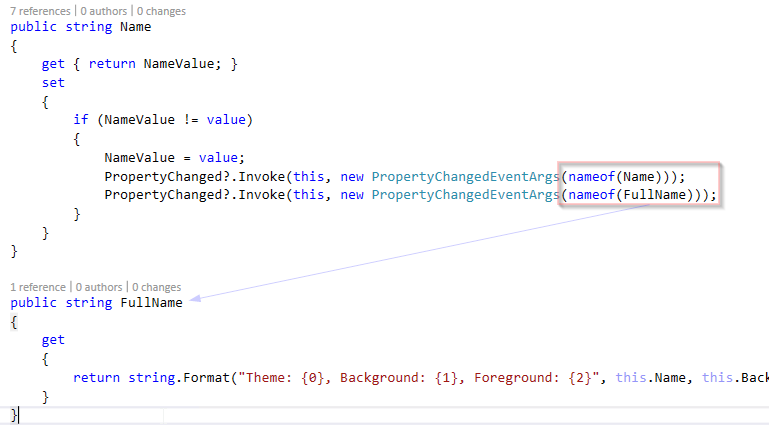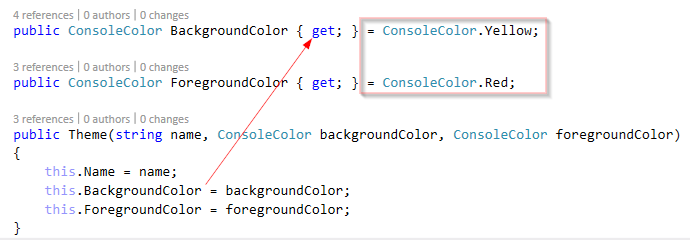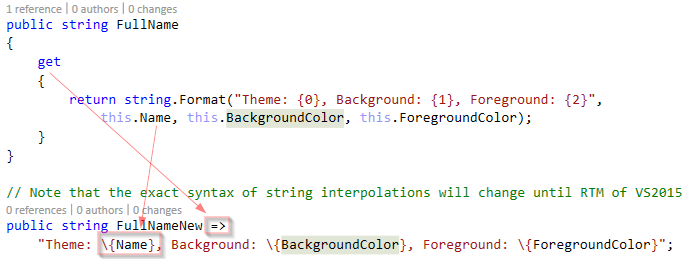.NET Infoday - What's New in C# 6?
04 December 2014 - C#, Visual Studio
At IT-Visions' .NET InfoDay 2015 in Graz, my friend Roman Schacherl and I will do a session about new features in C# 6. In this blog article I summarize the content of the talk and make the sample available for download.
Introduction
The upcoming version of C# will bring some convenient features for every-day coding. You should not expect such ground-breaking changes* like async/await. However, your C# code will be easier to write and easier to read if you make use of the new features.
In our session we cover the following new C# topics:
- Null-conditional Operator
- nameof Operator
- Dictionary Initializers
- Auto-Property initializers
- Expression Bodied Functions and Properties
- Static Using Statements - not covered here as we are no big fans of this feature ;-)
- Exception-Handling (async, exception filters)
- String Interpolation
*) In fact, you can. With Visual Studio 2015, Microsoft puts Roslyn, their brand new compiler platform for C# and Visual Basic, into production. This new platform is a real game-changer for language- and programming-tools around C# and VB. Our talk and therefore this article do not cover Roslyn.
Sample
Roman prepared a sample for our talk based on which we show all the new features of C# 6 mentioned above. I added this sample to my GitHub Samples repository. You can download it from there.
Null-conditional Operator
Basic Usage
Imagine the following code sample (Program.cs):
public class Program
{
private static IList<Theme> themes;
static void Main(string[] args)
{
InitializeThemes();
DoSomethingWithCSharp6();
}
private static void DoSomethingWithCSharp6()
{
// Read theme from application settings and look it up in theme directory
var themeConfig = ConfigurationManager.AppSettings["Theme"].ToLower();
var theme = themes.FirstOrDefault(p => p.Name == themeConfig);
Console.ForegroundColor = theme.ForegroundColor;
Console.BackgroundColor = theme.BackgroundColor;
}
private static void InitializeThemes()
{
themes = new List<Theme>()
{
new Theme("dark", ConsoleColor.Black, ConsoleColor.White),
new Theme("light", ConsoleColor.White, ConsoleColor.Black),
new Theme("winter", ConsoleColor.Gray, ConsoleColor.Gray) // everything's gray in Austrian winter.
};
}
}Note line 23. If the app.config file does not contain the Theme setting, we will get a null reference exception.

The reason is obious. AppSettings["Theme"] returns null and therefore the call to ToLower is invalid. In old versions of C# you would have to add an if statement. With C# 6, you can just add a "?", the null-conditional operator: var themeConfig = ConfigurationManager.AppSettings["Theme"]?.ToLower();
This change will solve the null referencing problem. However, the result stored in themeConfig will be null. Even with the "?", you will still have to write code to handle this null value. One option is the good old null coalesce operator. The following code snippet would fall back to the "light" theme if not app settings are present.

Multiple Null Conditional Operators in a Single Expression
You can also combine multiple null conditional operators in a single expression.
However, you have to note that whenever you use the new operator, the return type will be nullable (in this case Nullable<ConsoleColor> instead of ConsoleColor).

The new null conditional operator is also handy with arrays as shown in the following code snippet (for test purposes I added a null pointer to the themes array to generate the following screenshot):

Null Conditional Operator Behind the Scenes
So what happens behind the scene? Let's look at the generated IL code (see following screenshot). Note the brtrue.s statments that are added to handle null values (see details about IL statements in Wikipedia). This IL operation goes to the specified target if the value is true (i.e. not null).

Null Conditional Operator and Delegates
The null conditional operator is also usable with delegates. The typical example is an implementation of INotifyPropertyChanged as shown in the following code snippet:
public string Name
{
get { return NameValue; }
set
{
if (NameValue != value)
{
NameValue = value;
// Instead of:
// if (PropertyChanged != null)
// {
// PropertyChanged(this, new PropertyChangedEventArgs("Name"));
// }
// you can now write:
PropertyChanged?.Invoke(this, new PropertyChangedEventArgs("Name"));
}
}
}Nameof Operator
Speaking of INotifyPropertyChanged: CallerMemberName has been a usefull addition in this context in the past. However, there are many situations where it is not sufficient. Enter nameof, a new C# operator:

Note that the compiler simply replaces nameof(Name) with the string "Name" during compile time.
Dictionary Initializers
Our Theme class can be used to demo the next C# 6 feature: You can now initialize dictionaries like you are used to initialize lists:

Auto-Properties Initializers
In a world that depends more and more on parallel and asnyc programming, immutable objects have become more and more important. Before C# 6, you had to add a private setter to initialize auto properties. In C# this is no longer necessary. Let's apply this to our Theme class. Note that the color-related property is set in the constructor although they do not have setters.

Expression Bodied Functions and Properties, String Interpolation
We can further enhance our Theme class. First, we can use a new feature called expression bodied properties to shorten the code necessary for our FullName property. In analogy you can also define methods like this. Additionally we can greatly enhance the string building code. Instead of string.Format we use the new string interpolation feature which makes our code much easier to read and maintain.

Exception Handling
Last but not least Microsoft has enhanced C#'s exception handling code. Firstly, C# 6 enables you to use async methods with await inside of a catch block. Think of an async logging API you would like to use. C# makes consuing it very easy. Additionally, C# 6 allows us to filter the exceptions that should be caught not only based on the exception's type.

Start Evaluating C# 6 and VS2015
Interested? You can easily try Visual Studio 2015 Preview in Microsoft Azure. Microsoft provides a ready-made VM image that is ready for your experiments within a few minutes:




